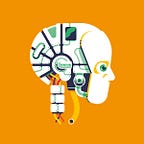China vs EU vs US on AI Ethical Guidelines; AI ‘Solves’ Music Source Separation
China’s AI news in the week of October 10, 2021
China’s AI Ethical Guidelines Regulate Data Privacy and Algorithms
On September 26, China issued its first set of guidelines on AI ethics amid rising public concerns over misuses of AI. The document published by China’s Ministry of Science and Technology outlines six high-level principles for AI systems, including:
- Improving human well-being
- Promoting fairness and justice
- Protecting privacy and safety
- Strengthening responsibility
- Raising ethical literacy
- Ensuring controllability and trustworthiness, in which humans should always rein in control over AI systems and are endowed with full decision-making power
The document also compiles a list of 18 ethical AI practices/rules in aspects of management, R&D, supply, and usage, ranging from data privacy to risk management. For example, one practice stipulates products or services should inform users of the usage, capabilities, and limits of AI, while offering options to select or exit the AI mode. This echoes another recent China regulation on facial recognition technology, which bars any collection or analysis of facial data without the consent of users of their guardians.
The announcement adds to a series of global governments’ pushback on AI. In April, EU Commission proposes new rules and actions for excellence and trust in AI that is seen as the most significant international effort to regulate the use of AI. At the same time, an independent US agency Federal Trade Commission (FTC) claimed in a blog post that it can punish companies that are not using AI “truthfully, fairly, and equitably.”
Focus:
- Part of China’s ethical AI guideline assembles GDPR that weighs on data privacy, empowering users to know information and make their own decisions. Algorithmic reliances and bias are also given higher priority in the provision.
- EU’s guidelines are scenario-oriented, prohibiting or restricting certain types of AI systems or applications, such as facial recognition, autonomous driving, and the algorithms for hiring or social crediting.
- FTC’s regulations on AI stem from three laws, including unfair or deceptive practices on commerce, algorithms used to deny people employment, housing, credit, insurance, or other benefits, and algorithms that result in credit discrimination.
Scope:
- China’s ethical AI guideline applies to all sectors, with a particular interest in the Internet industry.
- EU zero in critical public services sectors (credit scoring), infrastructure (transport) law enforcement, educations, and other sectors will affect daily life.
- FTC focuses on employment, housing, credit, insurance, or other benefits.
Timeline:
- China’s new AI rule will take effect now, and so does the US FTC. On the other hand, EU’s rules will take years to be implemented just like GDPR.
Deep Neural Network for Music Source Separation
Separating an individual component intact from a mixture of sounds — vocals, bass, and drums — has a wide range of applications, such as making a karaoke version of a song or isolating bass guitars from the rest of the band for tutorials. The task, known as Music Source Separation (MSS), remains an unsolvable challenge until now.
A research paper from ByteDance AI Lab caught much attention in the Reddit research community by investigating MSS. In the paper Decoupling Magnitude and Phase Estimation with Deep ResUNet for Music Source Separation, researchers indicated current MSS methods, which recognizes an individual source of signal from music based on its magnitudes, suffered from three limitations:
- Its incorrect phase reconstruction degrades the performance.
- It limits the magnitude of masks between 0 and 1 while researchers observe that 22% of time-frequency bins have ideal ratio mask values of over 1 in a popular dataset, MUSDB18.
- Its potential on very deep architectures is under-explored.
To overcome these limitations, researchers made three contributions:
- They proposed to decouple the magnitude and phase for estimating cIRMs, which increases the performance of the source separation systems
- To predict magnitudes with cIRMs larger than 1, they proposed to combine the predictions of mask and spectrogram.
- They proposed a deep residual UNet with 143 layers, validating the increased performance of deep architectures.
Experiment results showed their modifications improve the performance, achieving an SDR of 8.98 dB for vocals in MUSDB18. The research perfectly heels with ByteDance’s blockbuster short video apps, TikTok and its Chinese counterpart Douyin, which allow users to create short videos featuring music in the background.
Investment News:
- Horizon Robotics, an Intel-backed AI company specialized in chips that powers advanced automotive technology, is mulling to go public in Hong Kong instead of US, Bloomberg reported this week. Previously the company had been considering a U.S. listing that could raise as much as $1 billion.
- WM Motor, a Shanghai-based electric vehicle upstart, has announced that it has expected US$300+ million in a Series D1 round financing led by PCCW and Shun Tak Holdings. The Baidu- and Tencent-backed EV company has reported a record of 29,043 vehicles sold from January to September 2021.
- DefineSys, a Shanghai-based low-code PaaS company, has raised RMB tens of millions yuan in its Series A funding round. Founded in 2014, the company’s platform allows users to quickly build business applications with customized features, enabling enterprises to easily realize digital transformation.
